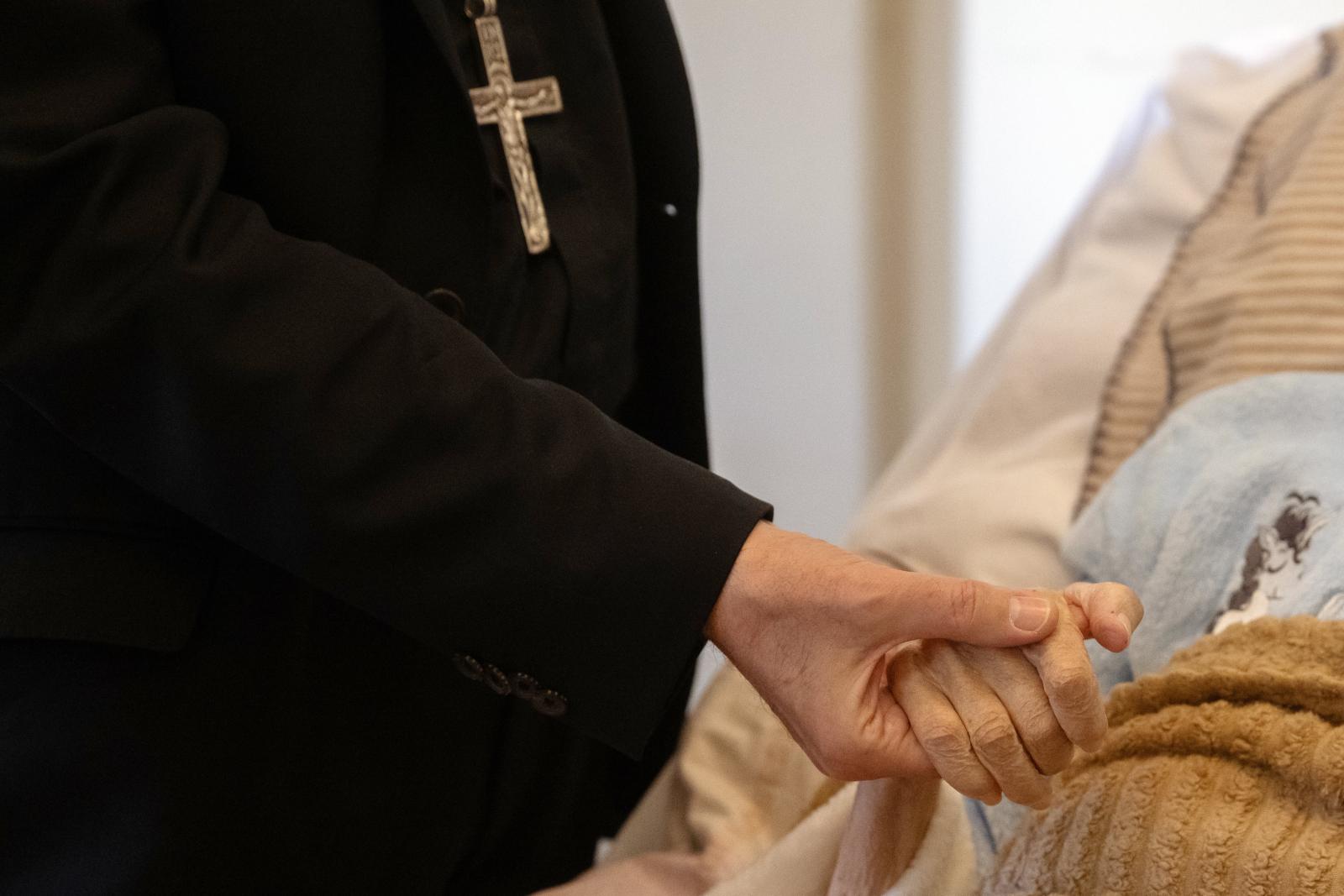By Fr Hugh Mackenzie
The life and death of each of us has its influence on others
(Romans 14:7)
The Terminally Ill Adults (End of Life) Bill is heading for its third reading in Parliament. I am deeply concerned about the impact its passing into law would have on my regular ministry to dying people, of all religions and none, at St John’s Hospice in North London.
The role of the Multi-Disciplinary Team, of which I am a member, is to foster the lives of patients, body and soul, right up to natural death. This has been the guiding principle of medical care since the pre-Christian Hippocratic Oath, which still endures in our largely post-Christian culture.
An Anti-Hope Bill
When people whose pain is under control ask, ‘Can’t you just sedate me?’, this is simply a result of fear or depression. Rather than complying with their request, which we currently cannot do, we try to help them recover a sense of hope, not for a long life but for a meaningful one, no matter how brief.
If this ‘anti-hope’ bill becomes law, when someone says: ‘My life is not worth living’, we could legitimately reply, ‘Yes, you’re right! Shall we help you to commit suicide? In fact, one of the more common-sense amendments that was rejected at committee stage by MPs was to forbid the doctor to be the first to mention the idea.
A Counsel of Despair
Terminal suffering may understandably tempt us to despair, but that’s not inevitable. It’s lack of hope that makes suffering appear unbearable and gives death its bitter sting, not the other way around. This bill actively promotes despair.
Even before implementation, it will emphasise avoidance of suffering as the highest value in life. It will increase fear of death and promote the idea that only a physically active life is worth living.
Flawed Humanism
Suffering and death challenge the idea that we control our own destiny. At the end of our lives, as at the beginning, we are dependent on others and upon God. This bill is an attempt to eliminate this last barrier to creating a fully ‘humanistic’ culture.
Yet asserting individual autonomy is not, in fact, what it means to be human. We are interdependent and relational by nature. Legalising assisted suicide will weaken, not strengthen, what makes us truly human.
The Transforming Power Of Love
Many hospice patients say they are not religious. They or their family may ask: ‘Surely there’s no point to a life of suffering?’ I naturally respond with sympathy, but I might point out the ways in which they, not least their love through big challenges, inspire me.
Suffering can open up more honest communication with those closest to us. In my 12 years of experience in this work, I find that as people approach death, they often discover new opportunities for expressing love and gratitude, and can repair damaged relationships.
Some come to acknowledge the importance of connecting to a higher power and discover, or rediscover, prayer. Prayer becomes especially pure in the midst of suffering, opening us to God and each other in surprising ways.
The Spiritual Dimension
The Catholic Church has a unique emphasis on end-of-life care. A priest will immediately drop whatever he is doing to minister to a dying person.
And we have a lot in the Catholic toolbox for dying people. Prayers, blessings, sacraments, sacramentals and the Saints unite us with Christ, who suffered and died on the cross. Those were the most powerful and fruitful moments of his life on earth. While awful, suffering is not in itself a good thing; through sacrificial love, it heals its causes, our fallen world.
With the right spiritual care, the acceptance of terminal suffering can be fruitful and transformative for our own lives, too. To reject this out of fear or the assertion of individual autonomy is to rob ourselves of important opportunities of grace.
Legalising assisted suicide crosses a fundamental line in our attitudes to life as well as to death. If passed, this bill will rob us all vital dimensions of our shared humanity.
Contact your member of Parliament to oppose this bill
Photo: Mazur/cbcew.org.uk
